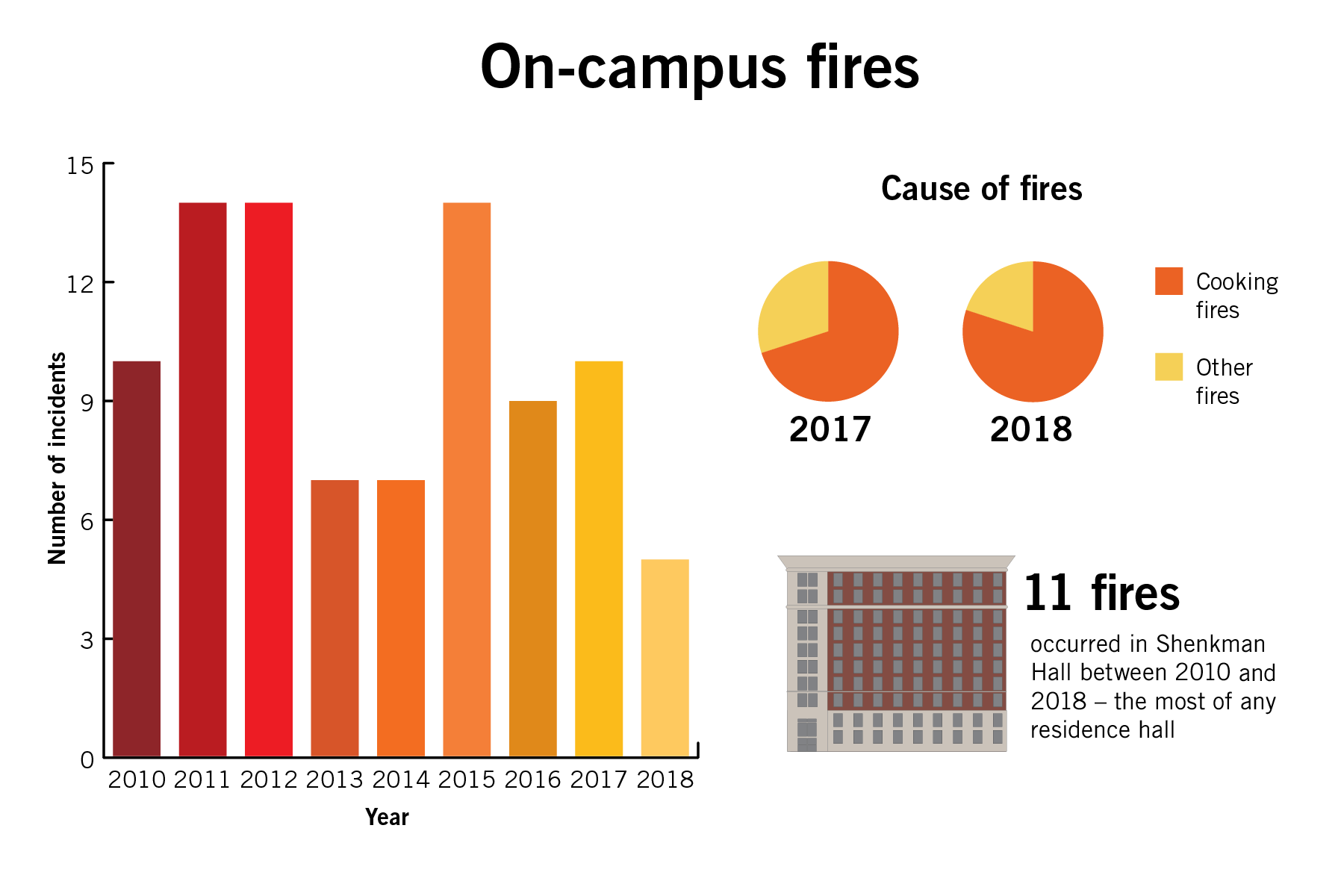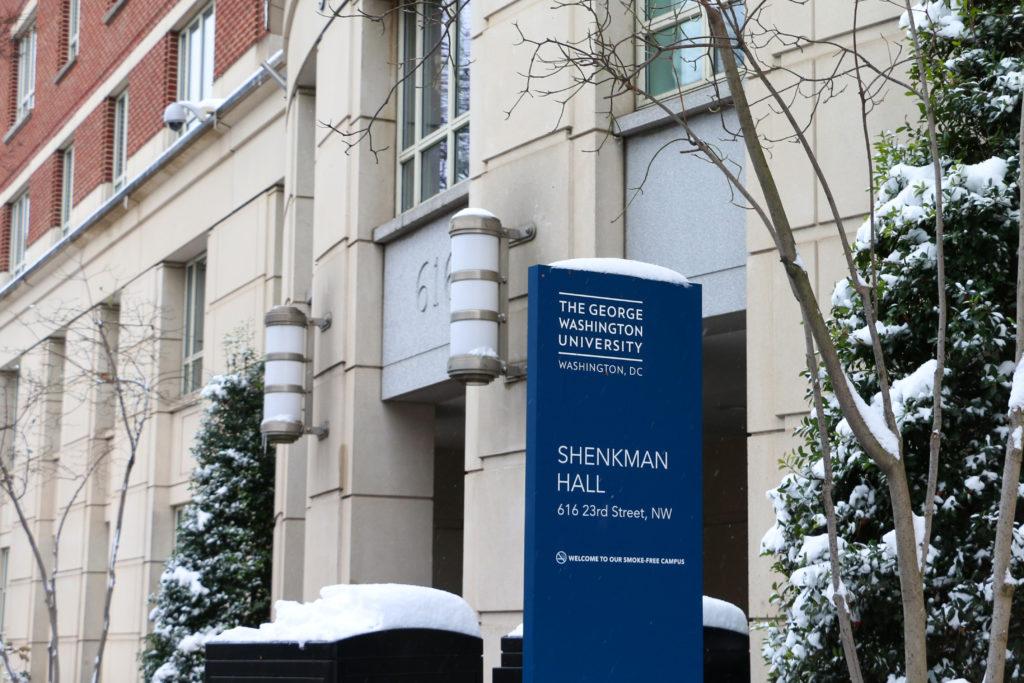Five fires occurred on campus last year, the fewest number of incidents since at least 2010.
The number of fires has fluctuated over the past several years, hitting a high of 14 in 2011, 2012 and 2015. The second-fewest number of fires occurred in 2013 and 2014 with seven incidents each year. There were 10 fires on campus in 2017 before the number was cut in half last year, according to the University’s annual fire log.
Officials and fire prevention experts said an increased focus on prevention education has likely contributed to the decline.
Over the past nine years, JBKO and Shenkman halls recorded the highest number of fires with eight and 11, respectively.

Emily Recko | Graphics Editor
Source: GW fire log
Darrell Darnell, the senior associate vice president for safety and security, said the Division of Safety and Security provides fire prevention training for students covering how to handle fire extinguishers. The division also “regularly inspects” residence halls to ensure that students do not possess prohibited items that can cause fires, like candles, he said.
“The University takes fire safety seriously,” Darnell said in an email. “The decrease in fire-related incidents is related to students, faculty and staff working together and engaging in safe practices that reduce the possibility of fires.”
Residence Hall Association President SJ Matthews said there has likely been a decline in on-campus fires because the RHA partnered with the Division of Operations last semester to provide students with lists of flammable prohibited items, including candles, incense and fragrance burners.
Matthews said RHA and the Division of Operations also sent out safety tips last semester to educate students about what they can do to avoid fires and how to respond in an emergency situation.
Matthews added that RHA has hosted cooking classes throughout the year to ensure that students understand how to safely use stoves and other appliances in their residence halls. Over the past two years, 11 of the 15 total fires were the result of cooking mishaps involving a stove, oven, toaster or microwave.
“Students are being given more tangible techniques and tips for residence hall life safety,” Matthews said in an email.
Aleazor Taylor, a fire safety education coordinator and junior fire setters program counselor at D.C. Fire and Emergency Medical Services, said D.C. FEMS has an inspector assigned to GW who works with officials to complete inspections and give presentations on fire safety and prevention.
Taylor said D.C. FEMS provides handouts to the University and Engine 23, the firehouse on G Street, that advise individuals to cook safely, prevent electrical fires and avoid smoking indoors. D.C. FEMS plans to reach out to all universities in the District this year to “amp up” fire safety education and work with institutions to create educational programming specific to those schools’ needs, Taylor said.
Taylor said the department has already partnered with Catholic University to create an individualized educational program for fire safety. She said the department will hold a safety fair at Catholic University for commuter students to educate students who live off-campus about fire prevention.
“What we would like to do is customize the approach based on the universities that we’re working with because every campus is different and the students are different and the needs are different,” Taylor said.
Vito Maggiolo, a spokesman for D.C. FEMS, said “carelessness” – like failing to pay attention while cooking or misusing candles – is the most common cause of residence hall fires. He said officials must ensure that buildings have working fire alarms and sprinklers, but students must practice safe cooking methods to avoid fires.
“If people don’t pay attention to what they’re doing, cooking or using portable heating, or candles, or those sorts of things, despite everybody’s best efforts, there are going to be incidents,” Maggiolo said.
Matt Cullen contributed reporting.





